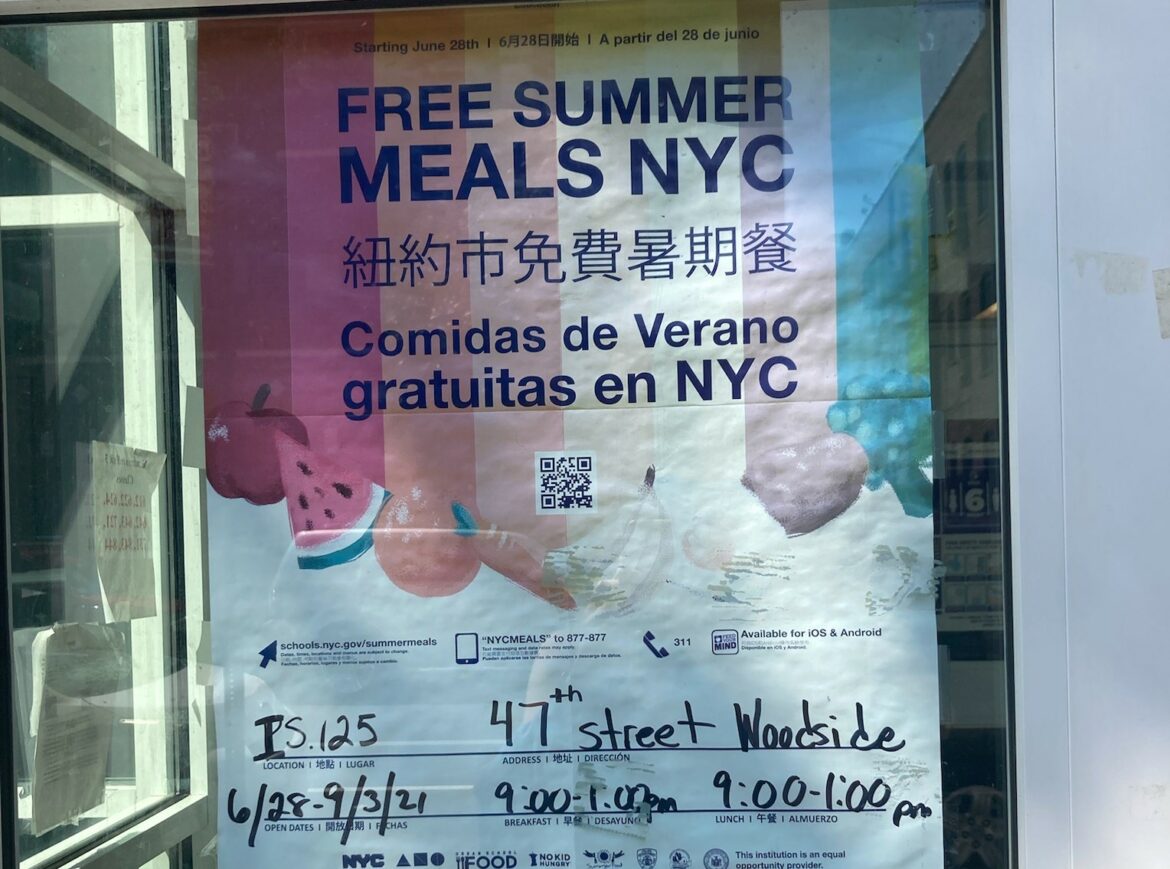Hunger and food insecurity are pervasive throughout New York City, and have only worsened since the onset of the COVID-19 pandemic last year. Many New Yorkers have relied on the city’s COVID-19 Emergency Food Distribution (called GetFoodNYC) to feed themselves and their families over these past eighteen months. Among the distribution programs included in GetFoodNYC are the Department of Education’s Grab-and-Go meals and Emergency Home Food Delivery, both of which provided nutritious meals and groceries to those in need. Grab-and-Go Meals, however, are set to expire on Friday, September 10, and GetFoodNYC will be accepting its final orders on Friday, October 1.
Prior to the COVID-19 pandemic 1.2 million of the city’s 8 million residents were suffering from food insecurity. But at the height of the pandemic, Mayor De Blasio estimated that the number of food insecure New Yorkers could be as high as 2 million. (There is still no tool in New York City that is able to measure food insecurity with enough accuracy to adequately respond to this crisis.) That number may have dropped since then, but it is still significantly higher than pre-pandemic times. Now, while vaccination rates climb and city life attempts to return to normal, hunger and food insecurity remain critical issues for many households across the five boroughs that disproportionately impact underserved communities of color.
As of July 2021, the unemployment rate in New York City was still more than ten percent, almost double the average of the entire United States. With grocery prices still on the rise and the expiration of increased SNAP benefits, many New Yorkers still need the GetFoodNYC program. Some will turn to other sources, such as food pantries and community fridges, to access food. But while these services may be helpful for many families, they are often smaller and have fewer resources than government-backed programs. Furthermore, many food pantries and soup kitchens closed during the height of the pandemic due to a lack of food and volunteers, and many of them have been unable to reopen. Should the rise of the Delta variant lead to renewed restrictions in New York City, it is unclear how still-existing pantries will continue to operate.
Many new organizations and community groups, such as pop-up food pantries, community fridges, and mutual aid networks, emerged with the COVID-19 pandemic, but these organizations rely on the continued goodwill and support of individual community members. Eliminating city-run food relief programs will put even more strain on these smaller organizations, many of which are not adequately equipped to handle such demand. Food pantries received some money from the city government during the early months of the pandemic, but that money ran out by the end of 2020. If the city expects pantries and other grassroots groups to meet the needs it will no longer meet by ending these programs, it should provide more financial support to ensure that their resources are not exhausted.
Pre-COVID city life is slowly returning; however, even the pre-pandemic number of people who struggled to feed themselves and their families is unacceptable, and New York City must do more to help all its residents have access to enough nutritious, culturally appropriate food. Ending programs such as Emergency Home Food Delivery and Grab-and-Go meals will not end the hunger crisis these programs attempt to confront.
As per the Mayor’s Office of Food Policy please note the following:
- As students return to in-person learning on Monday, 9/13, the DOE will be returning to universal breakfast and lunch programs in all NYC DOE School Food Authority programs. While this means that the community model will be concluding with the end of the Summer Meals program on September 10th, the City has dedicated unprecedented resources into our emergency food provider network so that New Yorkers can continue to access free food options with no questions asked all across the city.
- While the COVID Emergency Food Home-Delivered Meal Program (EFD) will be concluding in October, the City is already in the process of contacting all New Yorkers who participate in the program to identify those who will still be in need of food assistance from the City beyond October. Those individuals will then be connected to longer-term programs and agency homes.
- The FY 22 includes increased support and resources to the City’s emergency food providers:
- An additional $27M has been allocated to Pandemic Food Reserve Emergency Distribution Program (P-FRED) through FY 22 to continue offering fresh, high-quality produce and shelf-stable food.
- There is also a $3.6M increase in baseline funding to the City’s Emergency Food Assistance Program (EFAP), now bringing the program’s annual budget to $23.8M.
- The City recently invested an additional $900,000 in equipment grants to build capacity in our City’s pantries.
- The City also provided $600,000 in funding for technology upgrades across the City’s pantry network.
- Lastly, on August 26th the City Council released its FY22 Council Discretionary Funding – Food Access and Benefits Initiative allocations. More information on this funding can be found here.
After the programs conclude, the city is advising participants to consult 311’s COVID-19 Resources and Support page. For more detailed information about food access points in each community, consult the Hunter College NYC Food Policy Center’s COVID-19 NYC Neighborhood Food Resource Guides. The Guides are updated every day to ensure that information about food access in each of NYC’s 59 community districts is accurate and up-to-date.


